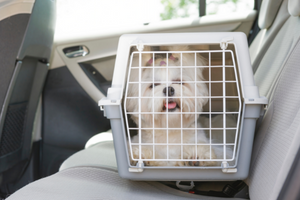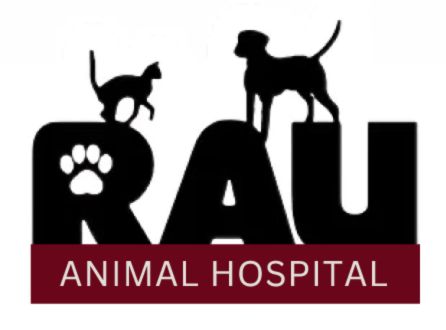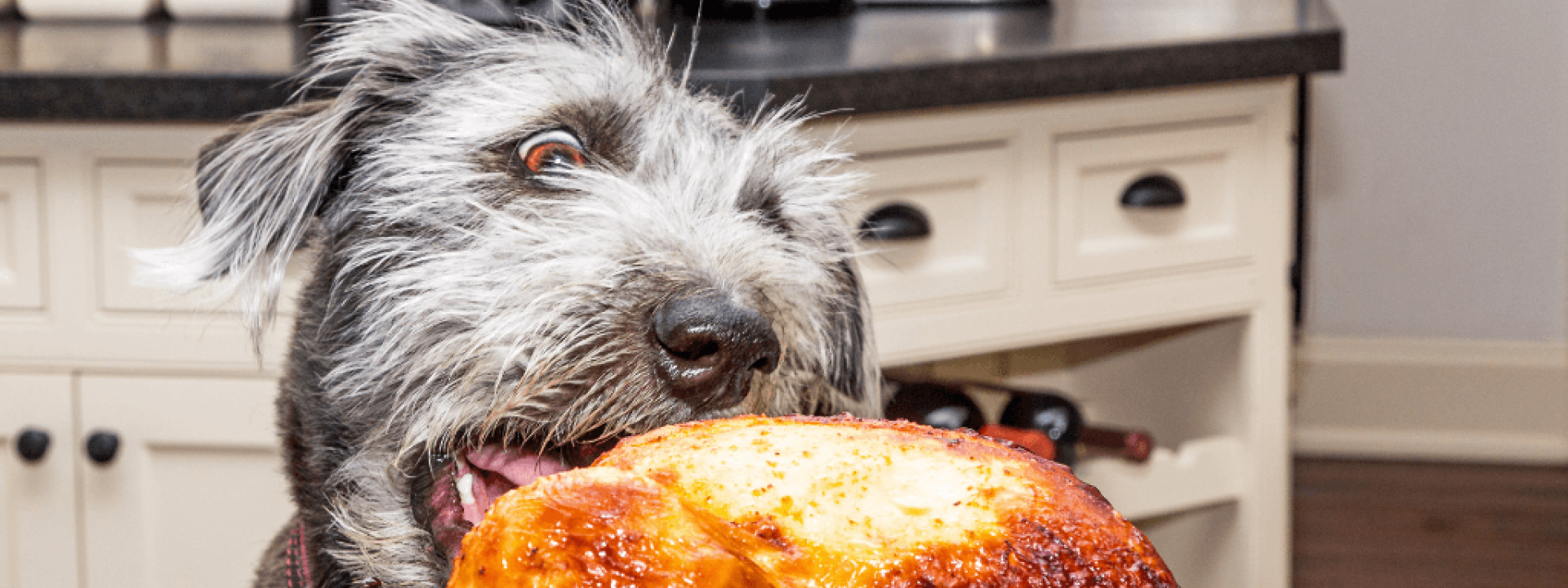Thanksgiving is a time to gather with family and friends to share a special meal, and it’s natural to want to include your furry family members in the festivities. Unfortunately, this holiday can be hazardous for pets. Many of the foods we associate with the holiday contain ingredients that are unsafe for dogs and cats. And of course, you must take special care if you plan on traveling over the river and through the woods with your canine companion or feline friend to enjoy your holiday meal.
As your pet’s veterinarian, we want them to stay happy and healthy throughout the holiday season. That’s why we decided to share a few tips and some information about a few of the most common Thanksgiving pet hazards so you can avoid an emergency with your dog or cat.
Food Hazards
Before you share some of your feast with your furry friend, make sure you aren’t giving them anything containing ingredients that are toxic or could cause digestive upset.
A few Thanksgiving foods and ingredients you shouldn’t give your pet include:
- Fatty dark turkey meat or skin
- Bones
- Gravy or fat drippings
- Unbaked yeast dough
- Onions, garlic, chives, and leeks
- Raisins or grapes
- Desserts containing chocolate or xylitol
- Alcohol
- Nutmeg
- Mushrooms
If you are unsure whether an ingredient is safe for pets, Pet Poison Helpline is an excellent resource. While several of your favorite Thanksgiving foods are unsafe for your four-legged family members, there are still a few viable options if you’d like to give your pet a special treat. If you plan on offering your dog or cat a treat, just make sure that the seemingly safe food doesn’t contain unsafe ingredients.
Pet-friendly Thanksgiving snacks include:
- Skinless, unseasoned turkey breast
- Raw fruits or vegetables (green beans, baby carrots, apples, and pumpkin puree)
- Cooked bread
- Cheese
- Sweet potatoes
To avoid digestive upset, keep your pet’s portion small and primarily stick to their typical diet.
Guest Hazards
If you are hosting Thanksgiving at your house this year, you’ll need to take a few essential steps to keep your pet safe. Most importantly, you need to ensure your dog or cat cannot dart out an open door and get lost. Consider installing gates to keep your canine companion away from the front door and prevent them from escaping during the hustle and bustle of guest arrivals and departures. The best way to protect your cat is to keep them in a safe room with the door closed when people are coming and going. Since the holiday season can be stressful for cats, giving them their own space (complete with a litter box, of course) may also make them more comfortable.
Make sure your guests know the rules regarding whether your furry family members are allowed to go outside. Let them know if your dog needs to be on a leash every time they go out for a potty break or if your cat lives strictly indoors. As your pet's veterinarian, we strongly recommend having them microchipped if you haven’t already done so. Keep a collar with a legible identification tag on them at all times, too. Simple steps like microchipping your dog or cat could save their life if they happen to escape this holiday season.
Whether you are just having guests over for dinner or they’re spending the entire weekend with you, they’ll likely have purses, backpacks, or luggage possibly containing hazards. Nothing will bring your festivities to a screeching halt faster than your pet getting into things like human medications, chocolate bars, or sugar-free gum, so ask your guests to hang their bags up rather than placing them on the floor. Keep the door to the guest bedroom closed at all times to keep your pets from sticking their noses where they don’t belong.

Travel Hazards
When traveling with pets, always take precautions to keep them safe. You should always correctly restrain dogs and cats when in vehicles. If you have a cat or small dog, place them in a carrier, and secure it in place so it won’t tip or roll if you make a sudden turn or stop. Place it in a location that’s clear of airbags, too, to lower the risk of injury if you are involved in an accident. A travel harness that connects to one of your car’s seat belts works well for larger pets. Just make sure it fits properly to keep your furry friend safe in the event of a crash.
If you are transporting food or anything else that could be dangerous for your pet, place it well out of your dog or cat’s reach. Never leave your four-legged family member alone in your vehicle — even if the weather is mild. It only takes seconds for disaster to strike by the temperature getting too high or too low, so you should never leave an animal unattended while traveling.
When packing for your trip, be sure to bring everything your pet will need. In addition to their regular food, medications, and litter, pack copies of their medical records, first aid supplies, a few favorite toys, and other pet travel essentials.
Closing Thoughts
This Thanksgiving, don’t let an emergency involving your precious pet put a damper on the festivities. With careful planning and preparation, you can keep your furry friend safe and start the holiday season off with a “ho ho ho” instead of a “no, no, no!” If your pet needs veterinary care or you have any questions about how you can protect them during this hectic time of year, we are here to help. Reach out to us today to schedule an appointment!

